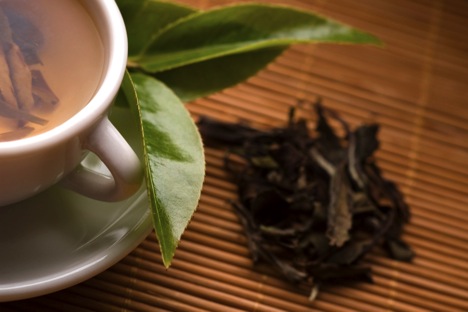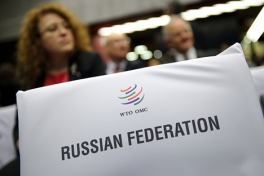Russia’s tea market has nowhere to grow

Tea production in Russia has shrunk by almost 30% since the 2008 crisis. Source: ITAR-TASS
Active business consolidation is underway on the Russian tea and coffee market. At the end of summer, one of the biggest global producers – Tata Global Beverages (a subsidiary of India’s Tata Group) increased its equity stake in the Russian company SuntyCo Holdings (owner of the Grand trade name) to 65%. With 35% of SuntyCo, the European Bank for Reconstruction and Development remains its partner in Russia.
Industry experts believe the consolidation will continue. Five companies – Unilever, May Company, Orimi Trade, SDS-Foods, and Sapsan – control 75–80% of Russia’s tea market between them.
Russia is among the global leaders in terms of tea consumption (ranking fifth after India, China, Turkey, and the UK). According to KPMG analysts, an average Russian drinks around two cups of coffee and more than 3.5 cups of tea daily.
Tea consumption is on the rise, having grown to around $3.3 bn in 2011 (source: Euromonitor International) from an estimated $2.9 bn in 2010 (source: FSGS). While no final figures for 2012 are available yet, experts have predicted a further growth in the hot beverage segment.
Yet the market is growing in dollar terms only. Actual consumption has been shrinking by 1–2% a year. The most important reason is market oversaturation. ROIF Expert analysts believe that the tea market has reached its physical limits in Russia, as more than 90% of its residents already drink tea. “Tea market players have only one way to develop under the circumstances, which is via qualitative growth, e.g., by bringing new kinds of tea to the market”, says the analytical company’s website.
Quality teas occupy 30% of the market, with another 50% represented by mass-market, medium-quality brands. The rest is low-quality tea. “As household incomes rise, the share of quality teas will continue to grow and that of medium- and poor-quality ones will shrink”, said Dmitry Kumanovsky, Head of Research of ZAO LMS Investment Company.
“This market may be called rather difficult. Consumption growth has been gradually slowing, as more and more substitutes successfully compete with tea, and the competition intensifies as household incomes rise. The positive dynamics in dollar terms are due to price rises and a growing share of premium products”, Finam Management analyst Maxim Klyagin said.
The reasons behind the weakening demand for tea include unfavourable demographics (Russia’s population keeps shrinking), loss of the young target audience, which is small to begin with (the generation of the 1990s, when the birth rate collapsed because of deteriorating living standards, is coming of age), and the rising popularity of convenient tea bags among office workers. Ramaz Chanturiya, General Director of the Roschaikofe trade association, projects that the share of such tea will rise to 90% in the immediate future.
Tea production in Russia has shrunk by almost 30% since the 2008 crisis. Domestic production accounts for 80–85% of the market now, although almost all of it is made from imported feedstock, whose share is close to 100%. Russia grows less than 1% of the tea it consumes, all coming from the Krasnodar Territory. And there is no way for this share to increase. Because of climatic conditions, Russian feedstock, despite the high quality of some of its varieties, is generally non-competitive. A considerable portion of imported feedstock is bought at tea auctions in countries where it is grown, such as Sri Lanka, China, India, Indonesia, Vietnam, and Kenya, according to ROIF Expert.
Tea imports are also growing slowly, having risen just 4.1% since the 2008 crisis. What is more, black tea accounted for more than 90% of total imports in 2011. Between January and August 2012, imports dipped by 7.4% to 115,400 tonnes, the Russian Federal Customs Service reported. In dollar terms, tea imports shrank 4%, to approximately $392 mn.
Dwindling demand has resulted in Russia, which grows a negligible amount domestically, becoming an exporter. Its tea exports grew by almost 16% in 2011.
Yet it is possible that everything will start changing in the second half of 2012. After its accession to the WTO, Russia will begin a phased-in reduction of import duties on packaged tea, from 20% at present to 12.5% four years down the road. “We project a decline in the competitive position of Russia’s processing industry, a loss of investment and, as a result, a transfer of production capacity from Russia to other countries”, Ramaz Chanturiya of the Roschaikofe association said last spring. He predicted a $2 bn loss for Russia’s GDP in the event of such developments, though he included potential losses on coffee production in that number.
All rights reserved by Rossiyskaya Gazeta.
Subscribe
to our newsletter!
Get the week's best stories straight to your inbox
